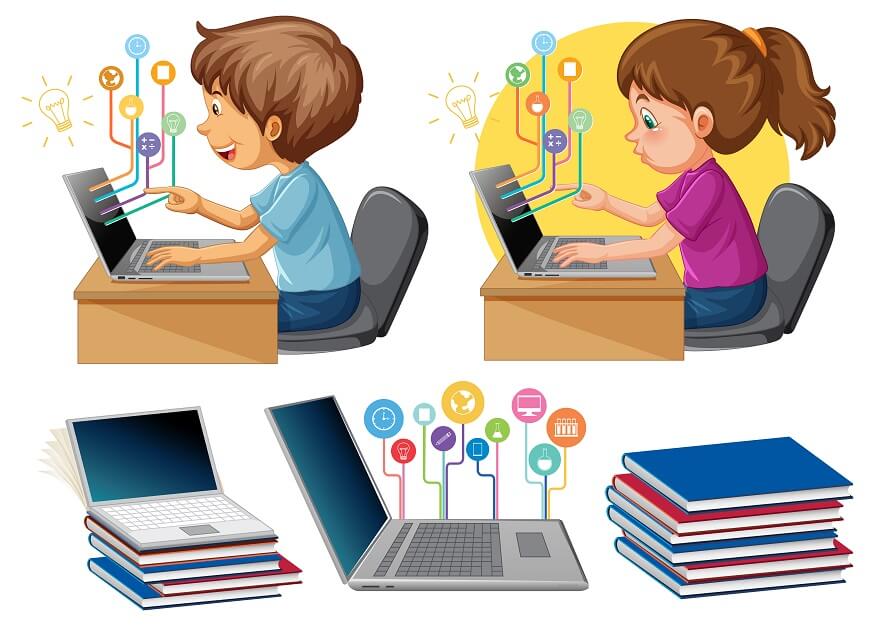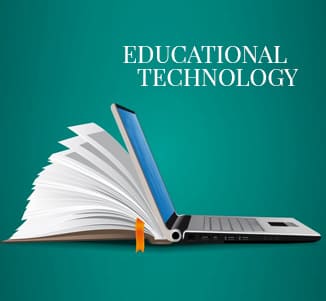Stay Ahead of the Contour with AI Tools Built for Success in Every Area
Stay Ahead of the Contour with AI Tools Built for Success in Every Area
Blog Article
Comprehensive Service Guides for Progressing Modern Technology Education in Schools and Colleges
The combination of technology education and learning right into college and college educational program has ended up being a crucial vital in preparing pupils for an increasingly electronic workforce. Detailed organization overviews play a pivotal duty in this change by describing the required structures for effective program execution, fostering necessary market collaborations, and gauging educational end results. As instructional organizations make every effort to straighten themselves with market demands, the challenges and opportunities offered by these overviews merit a closer exam. Education. What specific approaches can be adopted to optimize their effect on both students and educators?
Relevance of Innovation Education
As modern technology proceeds to develop at an unprecedented pace, the relevance of innovation education has become significantly obvious in today's society. The assimilation of technology into numerous elements of life demands that individuals possess a fundamental understanding of technological principles and applications. This understanding not only enhances employability yet also promotes critical reasoning and analytic skills necessary for navigating a dynamic workforce.
In academic organizations, modern technology education and learning gears up students with the ability to adjust to rapid modifications in industries driven by technology. It motivates creative thinking and encourages students to involve with arising technologies, from man-made intelligence to information analytics. Moreover, technology education and learning promotes digital literacy, which is crucial in an era where information is easily offered yet commonly misleading.

Key Components of Effective Guides
Efficient overviews for modern technology education and learning should include a number of essential elements to make sure that learners get one of the most from their experiences. First, a well-defined curriculum is crucial, describing the goals, discovering results, and the skills to be established. This educational program must be frequently upgraded to show the swiftly advancing technical landscape, guaranteeing relevance and applicability.
Second, thorough resources that include textbooks, online materials, and hands-on tools are essential. These resources must be easily accessible and varied, accommodating numerous discovering styles and choices. Furthermore, incorporating real-world situations and study can enhance understanding and interaction.
Third, evaluation techniques should be included to examine student development properly. These assessments must be varied, including summative and developmental analyses that straighten with the understanding objectives.
In addition, specialist advancement possibilities for instructors are critical. Educating programs and workshops can outfit teachers with the most recent instructional methods and technical improvements.
Finally, promoting a collective learning environment encourages peer communication and knowledge sharing. By including these key elements, guides for technology education can dramatically boost the learning experience, preparing students for future difficulties in a progressively digital world.
Structure Market Collaborations
Building solid sector collaborations is an important element of boosting innovation education. These partnerships in between schools and businesses develop a dynamic environment that benefits educators, pupils, and employers alike. By browse around this web-site fostering relationships with industry schools, colleges and leaders can align their curricula with the advancing demands of the job market, making certain that trainees obtain pertinent skills and understanding.
The development of internships, instructions, and mentorship programs serves as a keystone of these collaborations. Such opportunities provide trainees with hands-on experience, improving their employability and functional understanding of innovation applications. In addition, industry companions can provide understandings right into emerging patterns and technical improvements, enabling teachers to adjust their mentor methods as necessary.
Moreover, collaborations can promote accessibility to get redirected here sources, such as tools, software, and funding for study jobs. These contributions enrich the learning atmosphere and enable institutions to remain at the forefront of technical development. Ultimately, building robust industry partnerships is essential for growing a competent labor force that satisfies the needs of today's rapidly altering technical landscape, while likewise driving financial growth and competition in the more comprehensive neighborhood.
Implementing Technology Programs
Carrying out modern technology programs within academic institutions requires a critical technique that prioritizes both curriculum development and source allocation. To launch successful innovation integration, establishments need to initially analyze their existing facilities and recognize gaps in sources, consisting of hardware, software application, and workers training. This analysis makes it possible for colleges and schools to produce a customized strategy that lines up with their details instructional objectives.
Following, it is vital to develop a comprehensive curriculum that integrates emerging innovations and market requirements. Working together with educators, sector professionals, and stakeholders can ensure that the educational program continues to be relevant and effective in next preparing students for the workforce (AI Tools). Furthermore, expert development for professors is crucial, as it gears up educators with the abilities needed to properly show brand-new innovations
Furthermore, institutions should emphasize the relevance of hands-on understanding experiences, such as workshops and laboratories, that allow students to use theoretical knowledge in useful settings. This experiential approach improves engagement and fosters crucial thinking. Ultimately, protecting sustainable financing via gives and partnerships can aid preserve and broaden technology programs, making certain long-lasting success and versatility in an ever-evolving technological landscape.
Gauging Success and Results
Evaluating the success and end results of innovation education programs is essential for confirming their impact and assisting future improvements. Effective dimension frameworks need to encompass both quantitative and qualitative metrics, giving a thorough view of program efficacy. Secret efficiency indications (KPIs) such as student enrollment numbers, retention rates, and course conclusion portions supply valuable measurable information.

Incorporating standardized analyses can further assess trainees' technological competencies and preparedness for the workforce. Benchmarking against comparable establishments enables contextually pertinent comparisons, highlighting areas for development.
Ultimately, the continual assessment of modern technology education programs promotes a society of improvement, making sure that they develop abreast with industry demands and instructional standards. By systematically determining success, establishments can not only demonstrate liability to stakeholders but likewise boost their offerings, therefore enriching the discovering experience and preparing pupils for the ever-changing technical landscape.
Final Thought

The combination of technology education and learning right into school and university curricula has come to be a vital essential in preparing trainees for a significantly electronic workforce.As innovation continues to evolve at an unprecedented speed, the value of modern technology education has become progressively obvious in today's culture.In instructional establishments, technology education and learning equips trainees with the capability to adapt to rapid changes in markets driven by development. By focusing on modern technology education and learning, institutions can cultivate a generation of notified residents capable of leveraging technology for individual and societal advancement. The execution of durable analysis methods allows establishments to determine success and results, ultimately enhancing the overall efficiency of modern technology education campaigns and preparing students for future obstacles.
Report this page